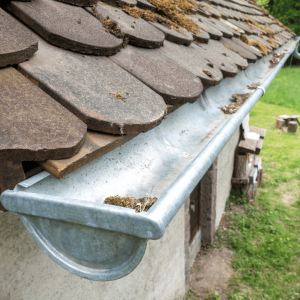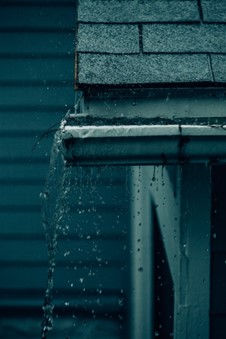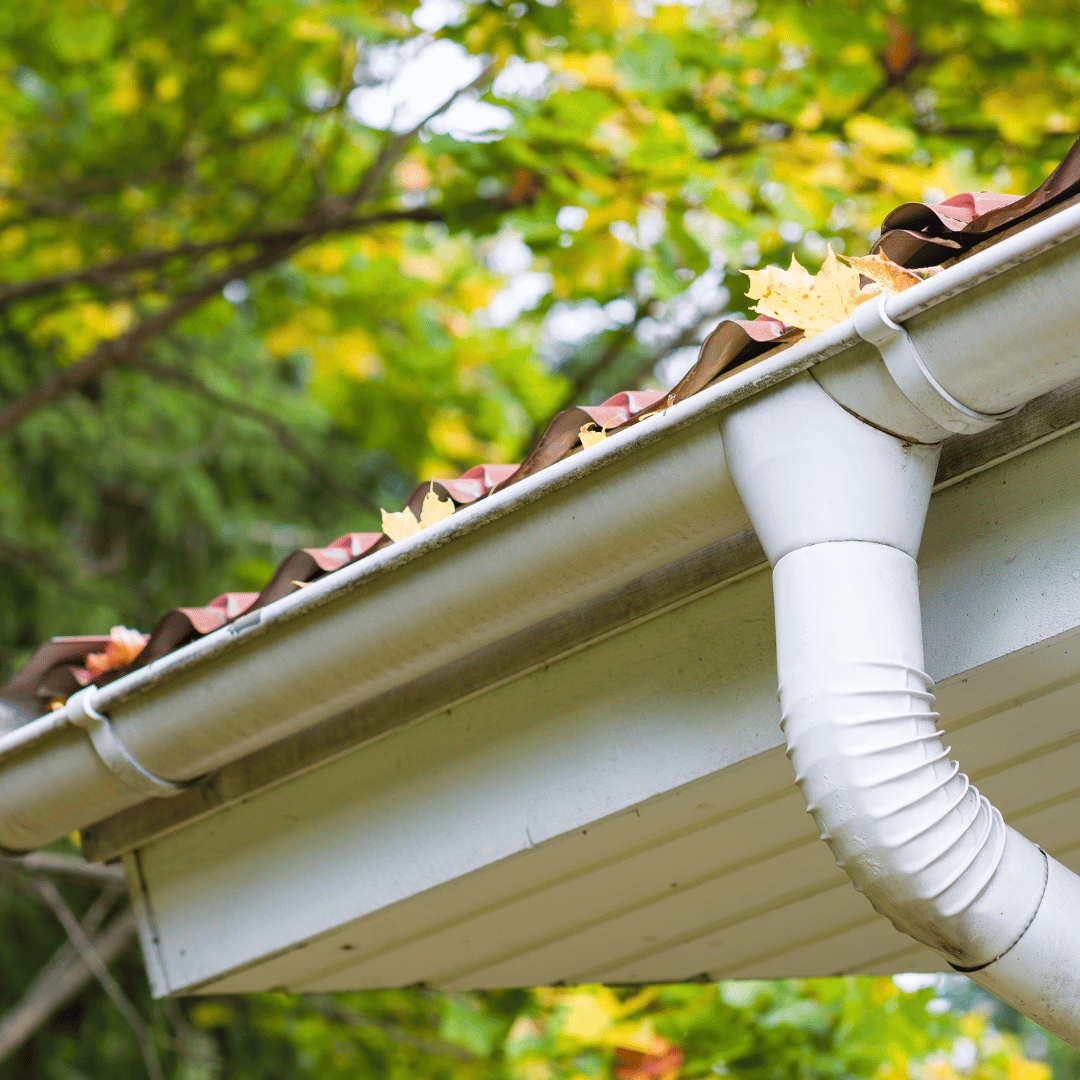
Maximize Your Home Maintenance: The Benefits of Using a Compressed Air Gutter Cleaner
Maintaining clean gutters is crucial for the overall health of your home. Clogged gutters can lead to water damage, mold growth, and even structural issues, making regular maintenance an essential part of home care. One innovative solution for efficient gutter cleaning is the compressed air gutter cleaner. This tool utilizes the power of compressed air to remove debris, leaves, and dirt from gutters quickly and effectively.
In this article, we will explore the benefits of using a compressed air gutter cleaner, answer common questions about its use, and compare it to other gutter cleaning methods. With the right knowledge, you can ensure your gutters remain in top shape, helping to protect your home and avoid costly repairs down the line. So, let’s dive in and discover how a compressed air gutter cleaner can make your gutter maintenance tasks easier and more effective!
What is a Compressed Air Gutter Cleaner?
A compressed air gutter cleaner is a specialized tool designed to make gutter cleaning simpler and more efficient. This device uses compressed air to blast away leaves, twigs, dirt, and other debris that often accumulate in gutters and downspouts. By harnessing the power of air pressure, this tool can clear out blockages quickly, preventing water from pooling and causing damage to your home.
How It Works
Compressed air gutter cleaners typically consist of a nozzle attached to a standard air compressor. The nozzle directs a powerful stream of air into the gutters, dislodging debris and allowing it to be easily removed. Here’s a brief overview of how to use one:
- Set Up the Air Compressor: Connect the nozzle to a compressor that can generate sufficient psi (pounds per square inch) to effectively clean your gutters.
- Position Yourself Safely: Use a sturdy ladder to reach your gutters safely, ensuring you’re stable while working.
- Blast Away Debris: Aim the nozzle at the gutter and activate the compressor. The force of the air will push out leaves and dirt, clearing the way for proper water flow.
- Collect the Debris: Make sure to catch or collect any debris that falls to the ground for easy cleanup afterward.
Benefits of Using a Compressed Air Gutter Cleaner
- Efficiency: The compressed air method allows for rapid cleaning without the need for physical scrubbing or climbing into the gutters.
- Accessibility: You can reach difficult spots without the hassle of manual tools or equipment.
- Minimal Mess: Unlike traditional gutter cleaning methods that may scatter debris everywhere, a compressed air cleaner focuses the mess, making it easier to collect afterward.
In summary, a compressed air gutter cleaner is an effective tool for homeowners looking to maintain their gutters without the labor-intensive process of traditional cleaning methods. In the following sections, we’ll explore common questions about its use and how it compares to other gutter cleaning techniques.
Can You Use an Air Compressor to Clean Gutters?
Yes, you can use an air compressor to clean gutters, and it can be an effective method for removing debris. This approach is especially useful for those who prefer not to climb into the gutters or use traditional cleaning tools like scoops or brushes. Here’s how to do it effectively:
- Choose the Right Air Compressor: Ensure that your air compressor is powerful enough to generate a sufficient psi. A compressor with at least 70-90 psi is generally recommended for gutter cleaning.
- Attach a Gutter Cleaning Nozzle: Many air compressors come with various nozzle attachments. Use a gutter cleaning nozzle that can direct the airflow effectively into the gutter and reach into tight spaces.
- Safety First: Before you start, ensure your ladder is secure and stable. Wear safety goggles to protect your eyes from flying debris.
- Direct the Airflow: Position the nozzle at the end of the gutter, pointing it toward the downspout. Activate the compressor and let the air blast through the gutter, dislodging leaves, dirt, and other debris.
- Move Systematically: Work your way along the gutter, moving slowly to ensure all debris is cleared. Pay extra attention to corners and downspouts, as these areas are prone to blockages.
How Much PSI is Needed to Clean Gutters?
When it comes to cleaning gutters with compressed air, the ideal psi (pounds per square inch) is typically between 70 and 90 psi. This range provides enough force to effectively dislodge leaves, twigs, and other debris without damaging the gutters themselves. Higher psi settings may be used, but it’s essential to ensure that your gutters are durable enough to withstand the pressure. Always refer to the manufacturer’s guidelines for both your air compressor and gutters to avoid any potential damage.
Other Considerations
- Inspect Gutters Regularly: Regular inspections can help you determine when to use the compressed air gutter cleaner. If you notice debris buildup or water pooling in the gutters, it’s time to clean them out.
- Pairing with Other Cleaning Methods: While compressed air is efficient, you may find that pairing it with other cleaning methods—such as a pressure washer for stubborn stains—can provide even better results.
In conclusion, using an air compressor to clean gutters can save time and effort, making it a practical option for many homeowners. In the next section, we’ll discuss how to achieve the best results by exploring what to spray on your sidewalk before pressure washing.
What Cleans Gutters the Best?
Cleaning gutters effectively requires the right tools and techniques. Here are some of the best methods and products to consider for keeping your gutters clear and functioning properly:
- Manual Cleaning:
- Tools Needed: Gloves, a scoop or trowel, and a bucket or tarp for debris collection.
- Method: This is the most straightforward method. Use a ladder to access your gutters, and manually remove leaves, twigs, and other debris. Make sure to wear gloves to protect your hands from sharp objects.
- Gutter Cleaning Tools:
- Gutter Scoop: A specialized scoop designed to fit the shape of gutters, allowing for easy debris removal.
- Gutter Cleaning Kit: Many hardware stores offer kits that include a scoop, a bucket, and other helpful tools.
- Pressure Washing:
- How it Works: Pressure washers can be effective for cleaning gutters and removing stubborn stains. Use a low-pressure setting to avoid damaging the gutters.
- Attachments: Many pressure washers come with attachments specifically designed for gutter cleaning, allowing you to spray from the ground safely.
- Compressed Air:
- Efficiency: As previously discussed, using a compressed air gutter cleaner can blast away debris without needing to climb into the gutters, making it a convenient option.
- Pro Tip: Make sure to aim the airflow towards the downspout to ensure that debris is directed out of the gutters.
- Commercial Gutter Cleaners:
- Chemical Solutions: There are many commercial gutter cleaning solutions available that can help dissolve tough stains or buildup. However, always follow the manufacturer’s instructions and ensure that the chemicals are safe for your gutter material.
- Professional Services:
- When to Call the Pros: If your gutters are particularly clogged or you’re uncomfortable with heights, hiring a professional gutter cleaning service can be a safe and effective choice.
Regular Maintenance is Key
To prevent debris buildup in the first place, consider scheduling regular gutter cleaning as part of your preventative home maintenance routine. This not only keeps your gutters functioning well but also helps avoid costly repairs down the line. Integrating gutter cleaning with other interior and exterior home maintenance tasks, such as pressure washing or window washing, can save you time and ensure your home stays in top condition.
In the next section, we will explore the effectiveness of pressure washer gutter cleaners and compare them to other tools, including leaf blowers.
Do Pressure Washer Gutter Cleaners Work?
Using a pressure washer for gutter cleaning can be an effective method when done correctly. Here’s a closer look at how pressure washer gutter cleaners function, their benefits, and potential drawbacks:
How Pressure Washer Gutter Cleaners Work
- Attachments:
- Many pressure washers come with specialized gutter cleaning attachments. These usually consist of a curved wand that allows you to reach the gutters from the ground. The design helps direct the water flow upward, making it easier to dislodge debris.
- Water Pressure:
- Pressure washers use high-pressure water jets to remove dirt, leaves, and grime. Most pressure washers operate between 1500 to 3000 psi (pounds per square inch), but for gutter cleaning, a lower setting is often recommended to prevent damage.
- Safety Features:
- Some pressure washer gutter cleaning kits include safety features like extension poles, enabling you to stay safely on the ground while cleaning.
Benefits of Using a Pressure Washer for Gutters
- Efficiency: Pressure washers can quickly remove stubborn debris and stains that manual cleaning might miss.
- Reach: With the right attachments, you can clean hard-to-reach areas without needing to climb a ladder.
- Time-Saving: A pressure washer can significantly reduce the time required for gutter cleaning compared to manual methods.
Drawbacks of Using a Pressure Washer for Gutters
- Potential Damage: If used at too high a pressure, a pressure washer can damage gutters, especially older or less durable materials. It’s essential to use a low-pressure setting.
- Water Overload: Overloading gutters with too much water can lead to overflow, which might cause water damage to your home if not managed properly.
- Learning Curve: If you’re unfamiliar with using a pressure washer, it may take some practice to get comfortable with its operation and achieve effective results.
While pressure washer gutter cleaners can be a powerful tool for maintaining your gutters, they should be used with caution. Regular maintenance and a thorough understanding of how to use your equipment effectively can help keep your gutters in optimal condition.
In the next section, we will compare pressure washing to using leaf blowers for gutter cleaning to see which method may be more suitable for your needs.
Is a Pressure Washer Better Than a Leaf Blower for Gutters?
When it comes to cleaning gutters, both pressure washers and leaf blowers have their advantages and disadvantages. Let’s explore the differences between the two methods to help you determine which one is more suitable for your gutter cleaning needs.
Pressure Washer vs. Leaf Blower
- Effectiveness:
- Pressure Washer: A pressure washer uses high-pressure water jets to dislodge and remove stubborn debris, such as mud, leaves, and algae. This method is particularly effective for deep cleaning and reaching hard-to-remove grime.
- Leaf Blower: A leaf blower is designed primarily for blowing away loose debris like leaves and twigs. While it can clear out most debris from gutters, it may struggle with heavier materials, such as wet leaves or mud that have compacted.
- Ease of Use:
- Pressure Washer: Using a pressure washer typically requires setting up the equipment, including hoses and attachments. It may also involve managing water flow, which can be challenging for some users.
- Leaf Blower: Leaf blowers are generally easier to use and require less setup. They are lightweight and portable, making it simple to maneuver around your home.
- Water Usage:
- Pressure Washer: This method uses a significant amount of water, which can lead to water runoff issues if not managed correctly. It’s essential to ensure that the water doesn’t accumulate near your foundation.
- Leaf Blower: A leaf blower does not use water, which eliminates concerns about runoff. However, it may not provide the same level of cleaning power as a pressure washer.
- Safety Considerations:
- Pressure Washer: Using a pressure washer can be safer in terms of avoiding ladders, as you can often reach gutters from the ground with the right attachment. However, the high pressure can pose a risk of injury if not handled properly.
- Leaf Blower: Leaf blowers are safer regarding the risk of water-related accidents, but you may still need a ladder for high gutters, which introduces the risk of falls.
- Cost:
- Pressure Washer: Pressure washers tend to be more expensive than leaf blowers, both in terms of initial investment and maintenance costs.
- Leaf Blower: Leaf blowers are generally more affordable and may require less maintenance compared to pressure washers.
Both pressure washers and leaf blowers can effectively clean gutters, but your choice will depend on your specific needs, budget, and comfort level. If you have heavily soiled gutters that require deep cleaning, a pressure washer may be the better option. Conversely, for regular maintenance and lightweight debris removal, a leaf blower can be a more convenient and cost-effective solution.
Cleaning your gutters is an essential aspect of home maintenance that helps prevent water damage and other issues associated with clogged gutters. Whether you opt for a compressed air gutter cleaner, a pressure washer, or a leaf blower, the key is to choose the right tool for your specific needs. Here’s a quick recap of what we covered:
- Compressed Air Gutter Cleaners can effectively remove debris without the mess of traditional methods, providing a safer way to maintain your gutters.
- Pressure Washers are excellent for deep cleaning but require careful handling and water management.
- Leaf Blowers offer ease of use and portability, making them a convenient choice for light debris removal, though they may not be as effective against stubborn clogs.
Regular gutter cleaning not only enhances your home’s appearance but also contributes to preventative home maintenance, safeguarding your property from potential damage. Remember to consider safety, effectiveness, and the type of debris you encounter when selecting your gutter cleaning method.
At HomeSmiles, we understand the importance of maintaining your home inside and out. If you need assistance with gutter cleaning, pressure washing, or any other preventative home maintenance, don’t hesitate to contact us. Our team is here to ensure that all your home maintenance tasks are completed efficiently, helping you avoid costly repairs down the line. Schedule your consultation today!
- Protecting Your Property: Why the Right Cleaning Method Makes All the Difference
- The #1 Thing That’s Dulling Your Curb Appeal (And How to Fix It)
- How Maintenance Bundles Provide Peace of Mind for Busy Small Business Owners and Facility Managers
- Essential vs. Complete Home Packages: Choosing the Right Preventive Care for Your Property
- How a Simplified Service Model Benefits Both Homeowners and Franchisees Alike


